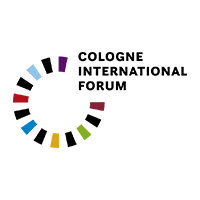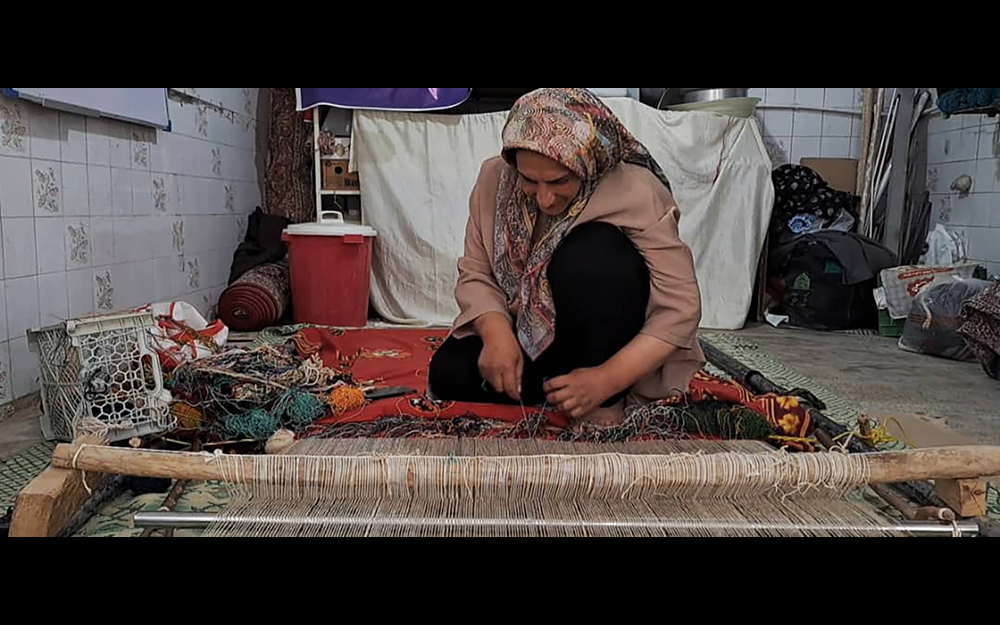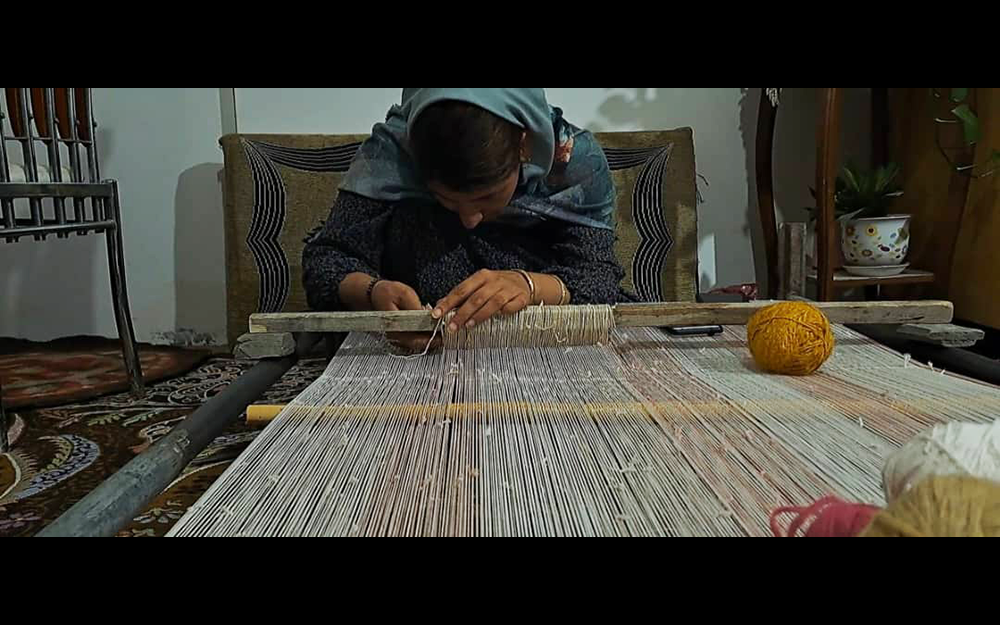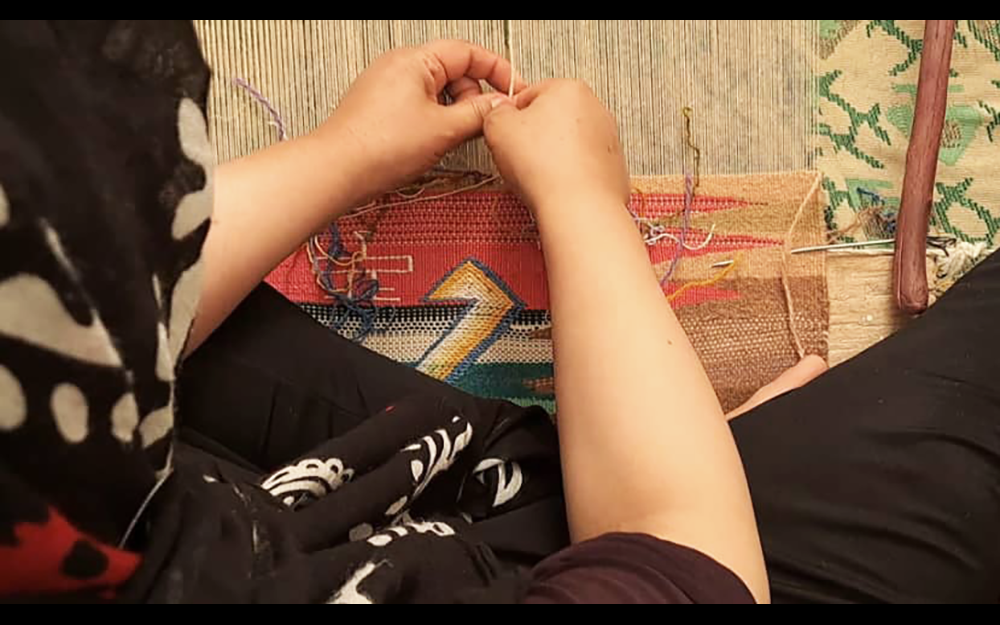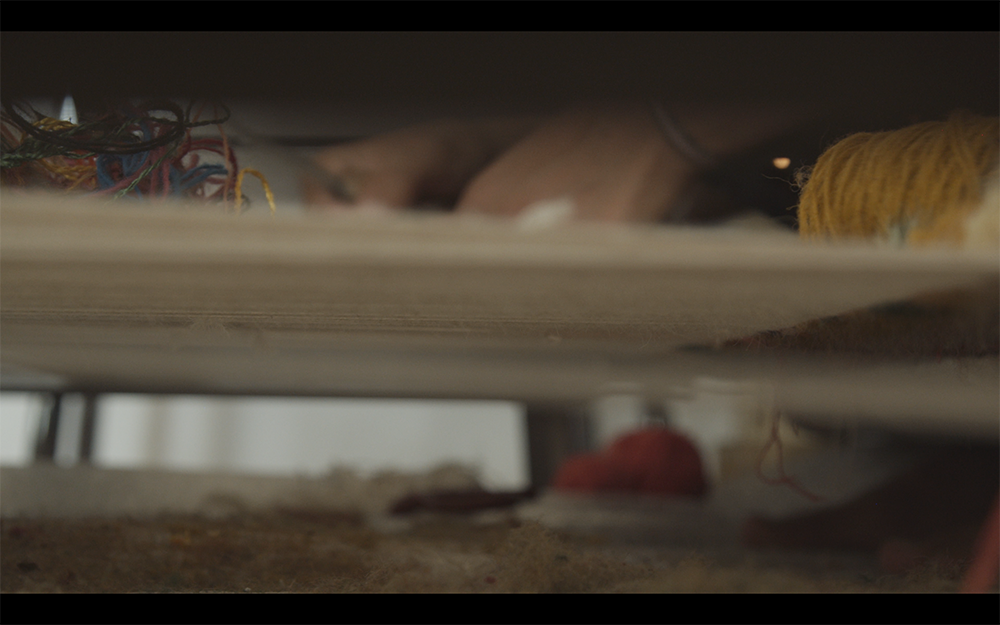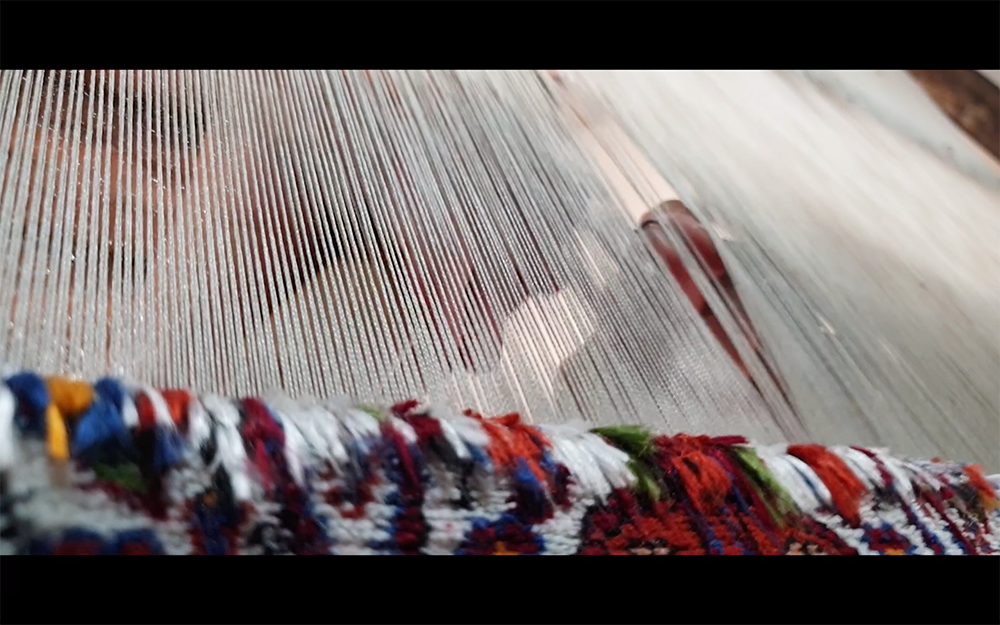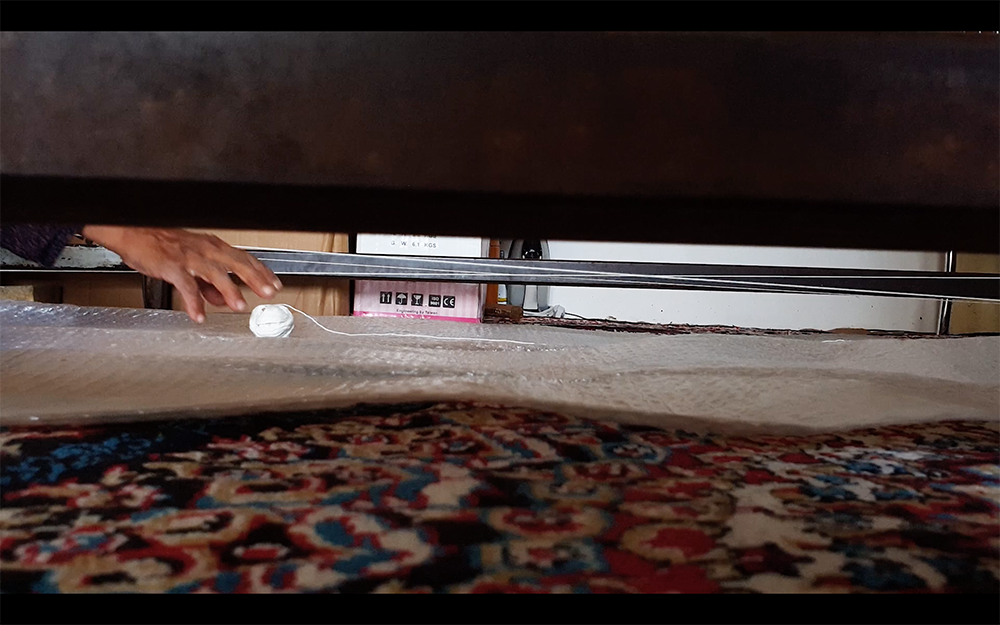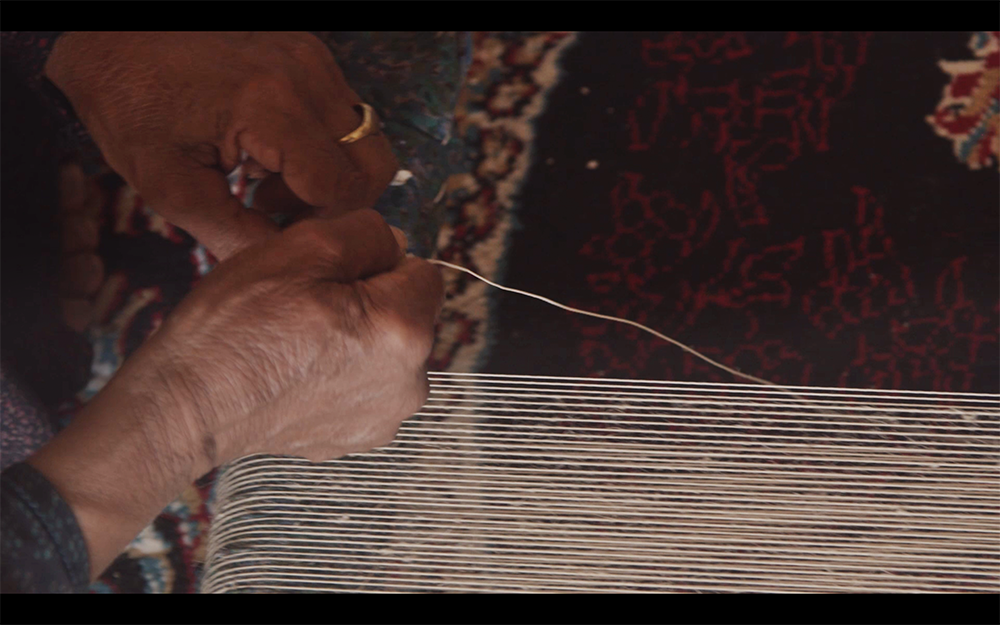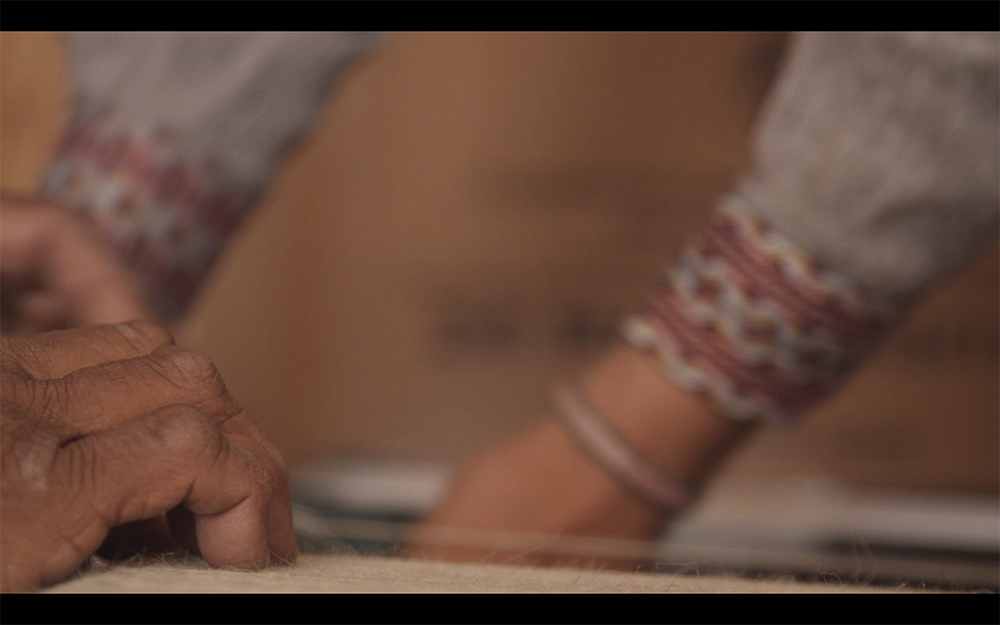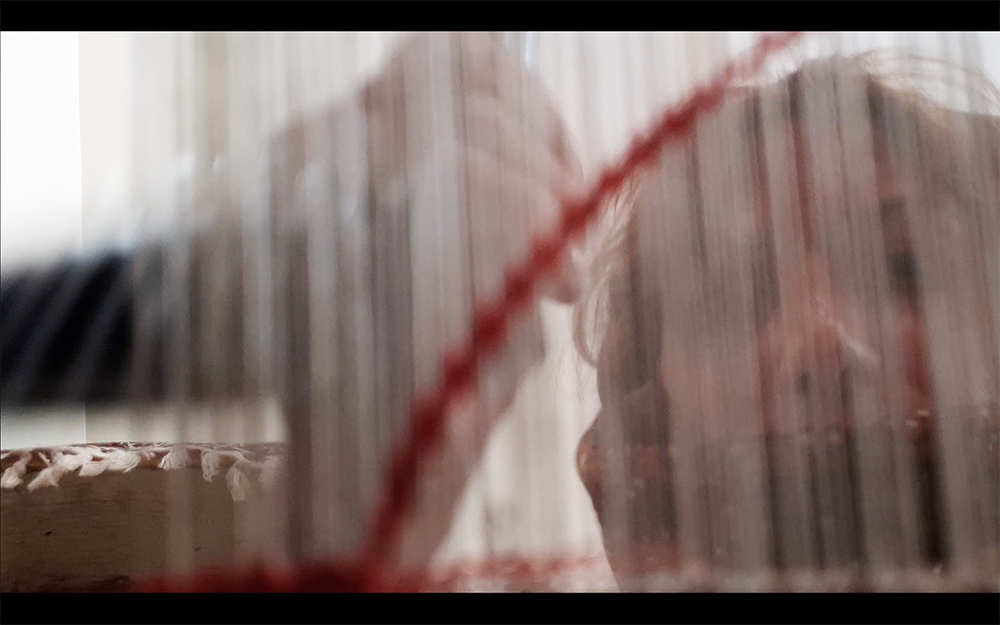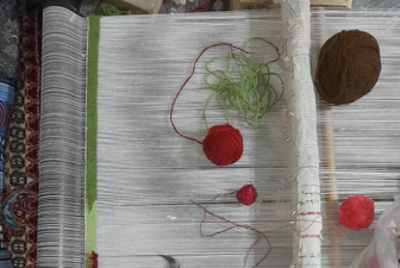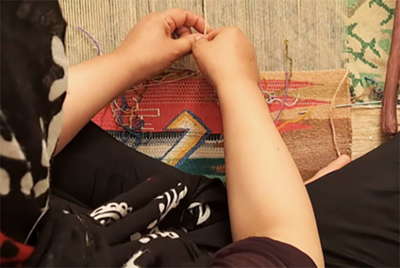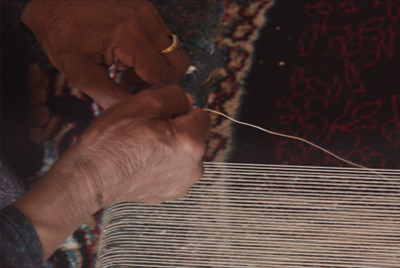Curating and Weaving Memories:
Critical Multimodal Collaborations
Cologne International Forum Innovative Tandem Collaboration: October 2023 - September 2024
Dr. Arjang Omrani (Ghent, Belgium)
Partner at the University of Cologne: Dr. Simone Pfeifer (Social and Cultural Anthropology)
Abstract
This project problematizes the systematic marginalization and exploitation of the weavers in the regime of production and trade of the (Persian) handmade carpets. The majority of the weavers have been traditionally the invisible and low-income agents, downgraded as a production machine, distantiated and alienated from their craft. This project critically argues that if the handmade carpets continue to be massively produced, at a relatively affordable price, it is due to the exploitation of the weavers. This begs the question how this condition can be changed.
As a response, this project tends to experiment with a solution through an art-based practice with an interventional approach that stresses the necessity of a radical transformation in the weaver's condition from what is interpreted as an instrument of weaving to an author. To pursue a transformation: of the weaver from an invisible to a visible agent; of the carpet from an artisan work to artwork and from a product to a medium of expression.
Through a collaborative and ‘sharing’ process, the project aims to inspire some weavers to weave their own diaries or life stories, as the primary step toward its main goals. It suggests: “Instead of weaving the patterns ordered by others, what if you weave your own story?”
The weavers may through an interactive workshop rediscover their craft as a medium, and the language of textures, colors, knots, thickness, and the like, as the tools for storytelling. To realize the awareness that spells: I know who I am, and I know what I am doing, and why.
The woven carpets alongside the poetic/collaborative – audio-visual – presentation of each weaver and the specific artwork will be presented through multi-modal and multi-platform exhibitions with the tendency to sell the artworks and to return the major share to their artists.
Events
Discover the exhibition “We are not Carpets! I tell you my story” at the Rautenstrauch-Joest Museum
September 27, 2024, until January 5, 2025
Join the SALON CONVERSATION: »Weaving Memories - Doing Research with and for the People«
25 November 2024 - 18 Uhr | University of Cologne, International House
With Tahereh Aboofazeli, Arjang Omrani, Simone Pfeifer, Kris Rutten, Nanette Snoep, and Masoumeh Zolfaghari
Workshop: Collaborative, Multimodal, and Curatorial Approaches to Research
26 November 2024, 10:00-16:00, Rautenstrauch-Joest-Museum, Cologne
Article ‘Gewebte Geschichten’ in German in the Cologne University Magazine No 38 about the project with many photographs from the exhibition in the Rautenstrauch-Joest-Museum — pages 6-17
Final Report: Curating and Weaving Memories - Critical Multimodal
Collaborations
Duration: October 2023 – January 2025
Participants: Dr. Arjang Omrani and Dr. Simone Pfeifer
Key Findings and Hypotheses:
The project Curating and Weaving Memories has demonstrated substantial progress in alignment with its original goals, affirming the validity of its innovative methodological approach. Positioned at the intersection of multimodal anthropology, critical public anthropology, pedagogy, and curatorial art-based research, the initiative shows that the systemic marginalization of Persian carpet weavers can be actively confronted through collaborative, multimodal engagement. By fostering the conditions for weavers to take on authorship in crafting their carpets and kilims as storytelling media, the project opens space for deeper public engagement and reclaims the agency of the weavers beyond the constraints of traditional, exploitative frameworks.
Methodology:
At the heart of the project is an ethical and politically engaged model rooted in shared anthropology. Through collaborative authorship and sustained participation between researchers and weaver-artists, the initiative has initiated processes of both decolonization and the democratization of knowledge. Fifteen carpets and kilims were created by seven weavers during a period of intensive fieldwork and collective workshops. These works express autobiographical, gendered, ecological, and community-based narratives that challenge conventional representations and market-driven aesthetics. The culmination of these efforts was the multimodal exhibition We Are Not Carpets; I Tell You My
Story held at the Rautenstrauch-Joest Museum in Cologne from September 2024 to January 2025. The exhibition—co-curated by Omrani, Pfeifer, and Aboofazeli—presented the carpets alongside video, sound, and interactive formats, making the weavers’ perspectives visible and impactful to a broad audience. The participation of Saheb-Jamal Rahimi, who traveled from Iran to lead workshops and engage with visitors, further embodied the project’s ethos of direct, collaborative knowledge-sharing. The exhibition attracted nearly 6,000 visitors and confirmed the effectiveness of this curatorial method in amplifying marginalized voices.
Continuing Research:
A follow-up workshop in November 2024 brought together scholars from Cologne and Ghent to discuss collaborative, multimodal, and curatorial research approaches. The team is currently preparing a co-authored contribution for the edited volume Traces/Sensing Traces and a multimodal
blog entry for boasblogs. Future engagements include a panel at the 2025 German Anthropological Association Conference and continued teaching collaborations, reinforcing the broader impact of his model of research as both artistic and political practice.
Dr. Arjang Omrani
I am an anthropologist–filmmaker, currently a postdoc researcher (FWO fellowship) at the Department of Psychology and Educational Sciences at the University of Ghent, Belgium.
In an interdisciplinary environment, I am engaged with multimodal, embodied, and collaborative modes of knowledge production within the framework of ‘shared anthropology’ and ‘critical public pedagogy’. I am exploring the more-than-textual —multimodal— processes of research and publications and pursuing the creative application of anthropology that tends to be inclusive – both for the people whom it works with and the wider public in general.
